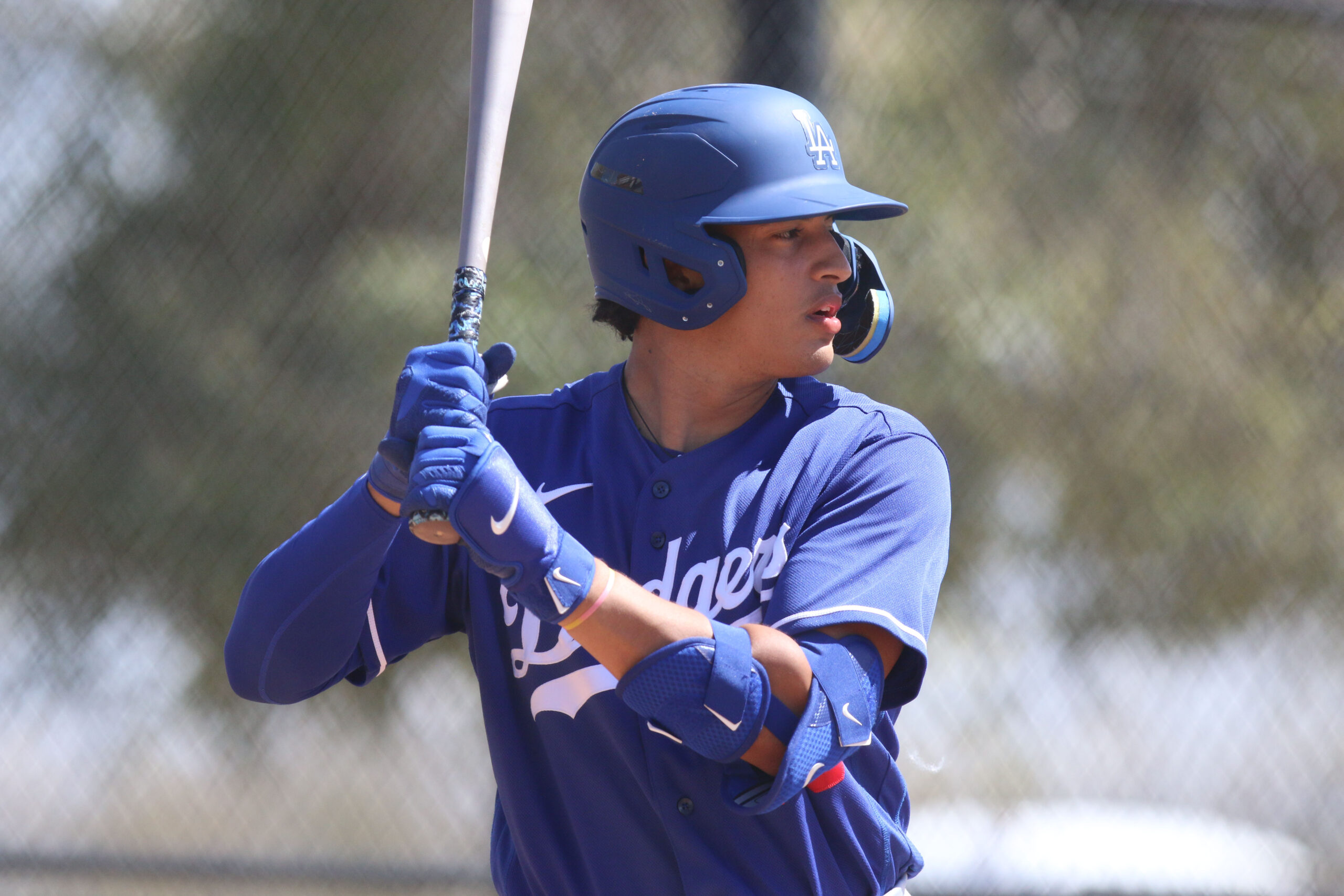After designating former top prospect Diego Cartaya for assignment last week, the Dodgers today traded him to the Twins for right-hander Jose Vasquez.
The Twins are sending minor league RHP Jose Vasquez back to Los Angeles. The 20-year-old has spend the last two summers in the DSL.
— Fabian Ardaya (@FabianArdaya) January 9, 2025
Cartaya, 23, was jettisoned off the 40-man roster to make room for Hyesong Kim, ending his up-and-down prospect career as a Dodger.
He signed out of Venezuela in July 2018 for $2.5 million and was immediately among the best prospects in the system. After a 2022 campaign that saw him hit .254/.389/.503 between both levels of A-ball, it looked like the sky was the limit for the backstop. However, a rough 2023 in Double-A with Tulsa — often times a proving ground for prospects — that saw him hit .189/.278/.379, dampened his future outlook. He hit slightly better between Tulsa and Triple-A Oklahoma City in 2024 (.221/.323/.363), but it wasn’t enough for the Dodgers to keep him around amid the roster crunch with just one MiLB option year remaining. He had fallen, substantially, behind Dalton Rushing and even Hunter Feduccia on the MiLB catching depth chart.
Cartaya now latches on with the Twins, whose new general manager Jeremy Zoll worked in the Dodgers’ front office as assistant farm director in 2018-19, so he’s more familiar than most GMs might be with a prospect like Cartaya. The fit from Minnesota’s end isn’t surprising. They’ve developed Ryan Jeffers into a solid catching option, as well as getting the best season of Mitch Garver‘s career out of him before trading him.
The return for the Dodgers is a 20-year-old Vasquez. Here’s some video of him:
José Vásquez, a 19-year-old from the DR, struck out 6 of the first 7 batters he faced in the DSL Twins win yesterday💥
— Twins Player Development (@TwinsPlayerDev) June 28, 2024
3 IP / 1 H / 3 R / 1 BB / 6 K
He is averaging 95 MPH this season after averaging 91 MPH last season ⛽️#MNTwins pic.twitter.com/BHfGy28fNK
Based on that video, it looks like he has a 2-seam fastball (or a 4-seamer w/ some natural arm-side run), a slider and changeup. A 20-year-old in rookie ball is, obviously, going to need a lot of work, but the offspeed offerings there definitely won’t get advanced minor-leaguers out at present, let alone major leaguers.
He’s the definition of a lottery ticket for the Dodgers’ player developmental staff, which is about all you can usually ask for when it comes to trading players who get designated for assignment.
——
The lesson here is: Prospects are volatile. No matter how highly touted, regarded or how glowing the scouting report is. The bust potential for all prospects is far more likely than the boom, and the Dodgers have done a relatively good job of developing such prospects — as well as finding some hidden gems.
Onto the next.
 Dodgers Digest Los Angeles Dodgers Baseball Blog
Dodgers Digest Los Angeles Dodgers Baseball Blog
